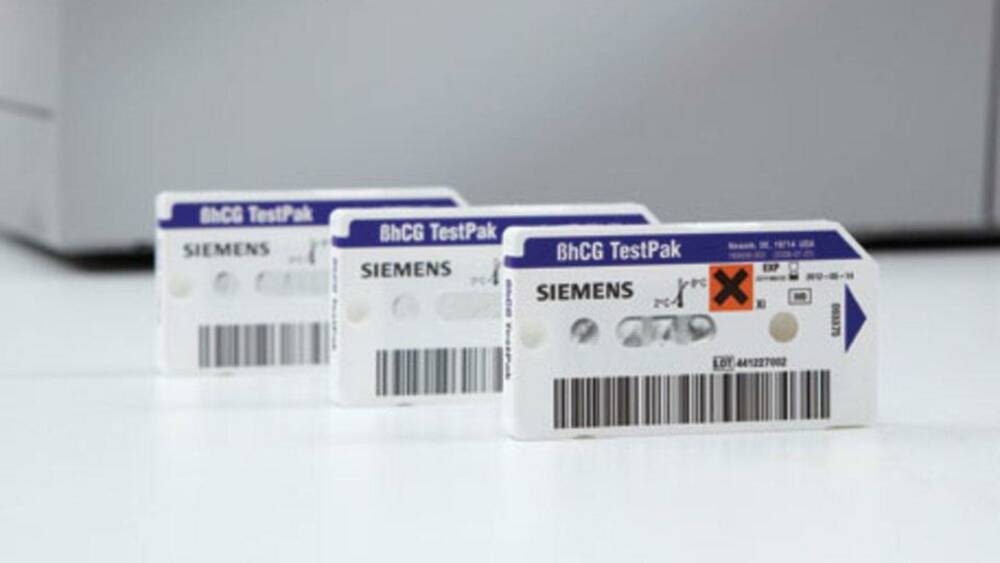


Running STAT βhCG ensures clinicians know of any potential pregnancies in their cardiac patients, and can recommend the most appropriate diagnostic assessments for those patients.βhCG on the Stratus® CS Acute Care™ Analyzer provides rapid, quantitative results for the early detection of pregnancy from a whole blood sample in as little as 14 minutes.
hCG hormone is produced by the placenta as soon as the fertilized ovum is implanted into the uterine wall. The presence of βhCG in plasma shortly after conception, followed by its rapid rise in concentration, makes it an excellent marker for confirmation of pregnancy. Physiologically, hCG appears to maintain the corpus luteum and support the endometrium. Levels increase to a peak concentration during the first trimester, then decrease and plateau during the remainder of the pregnancy. hCG circulates as the intact molecule in the serum of normal women who have an uncomplicated pregnancy.
|
βhCG |
|
|
Assay Range |
0.5 – 1,250 mlU/mL (IU/L) |
|
Sensitivity |
0.5 mlU/mL |
|
Reproducibility (CV) |
2.5% at 27.1 mlU/mL* |
|
Calibration Stability |
90 days |
|
DilPak™ Automatic Dilution |
Yes |
|
Sodium Heparin Tubes |
Yes |
|
Lithium Heparin Tubes |
Yes |
Loading...






















